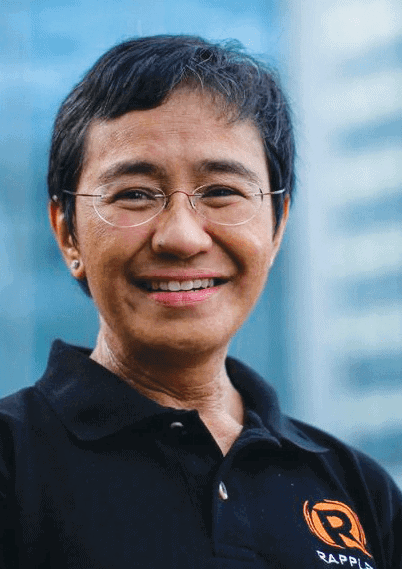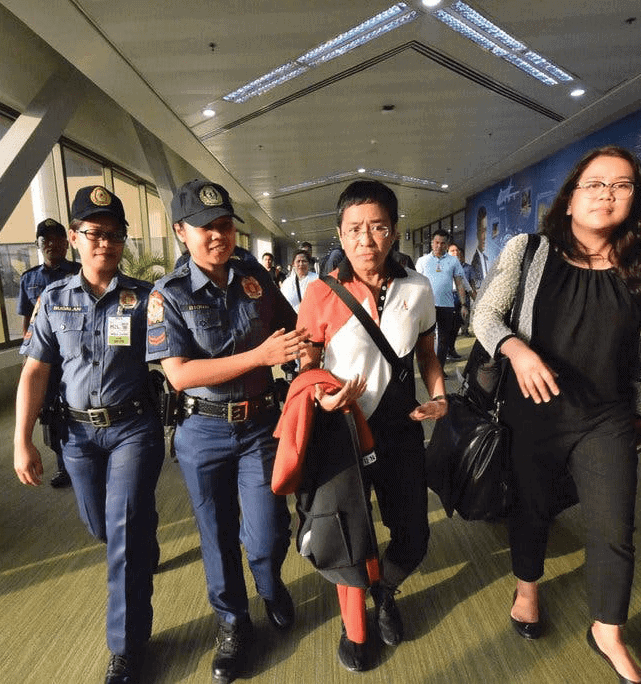
Even months before the COC (certificate of candidacy) filing week in early October 2021, Filipinos have been waiting with bated breath to find out who would finally decide to run in next year’s elections. Yes, election season in the Philippines has started and will run for seven months till May 2022. Among those in the presidential race are prominent celebrities like boxing champion and senator Manny Pacquiao, and actor-turned-politician Isko Moreno, the mayor of Manila. After their close fight in 2016, the late dictator’s son, Ferdinand “Bongbong” Marcos Jr., and Vice President Leni Robredo face off again, this time, for the presidency. Surprisingly, President Rodrigo Duterte’s daughter and Davao City mayor Sara Duterte-Carpio, who was also expected to run for president, opted instead to run for vice president in tandem with Bongbong Marcos.
The nation is still in a gloomy state because of the government’s haphazard pandemic response. To date, the Philippines has experienced four waves of COVID-19, reporting close to 3 million total cases and more than 48,000 deaths. So far, only a third of the population has been fully vaccinated, and by now, some would need booster shots. The different forms of lockdown that stretched for 20 months have dealt a heavy blow on the economy, with businesses struggling to stay afloat and as many as four million out of work. Making matters worse are controversies involving trillions of pesos of wasted pandemic funds and alleged corruption in the purchase of pandemic supplies which the government has denied.
A case in point are the plastic face shields. The statement “That’s corruption staring you in the face” with the picture of a face shield circulated in social media soon after the Senate probe into alleged anomalous procurement deals that marred the government’s response to the pandemic. Since December 2020, the Philippines has been one of the few nations that has required mandatory wearing of face shields. Despite claims that face shields provide an additional layer of protection against the coronavirus, there is still no solid medical and scientific proof that face shields are effective deterrents to the spread of COVID-19. It was only in mid-November this year, after a significant drop in COVID cases, when President Duterte, upon the recommendation of the IATF-EID (Inter-Agency Task Force for the Management of Emergent Infectious Diseases), lifted the mandatory use of face shields except in areas under strict lockdown and in medical and quarantine facilities.
Since the death of former President Benigno “Noynoy” Aquino, there have been increasing calls for the return of good governance in the country. In recent months, various individuals and groups have called for Vice President Leni Robredo to run for the presidency. Though undecided at first, she soon announced her presidential bid for the 2022 elections. This affirms that there is a genuine opposition which is essential to a healthy democracy. Despite Robredo being appointed to two different Cabinet positions by President Duterte, her serving in both the government housing agency and anti-illegal drugs body was short-lived because of major differences with President Duterte. Vice President Robredo, who has been a staunch human rights defender since her days as an alternative lawyer for the poor, had clashed with the president over his policies which include the institutionalized killing of suspected drug dealers and users, and the suppression of human rights advocates and journalists.
In the 2016 vice presidential race, Robredo was the “dark horse,” a little-known contender who unexpectedly won. After serving as vice president for the past five years, time and again, she has been the target of online trolling. All false claims about Robredo have been attempts to discredit her, despite the Office of the Vice President managing, even with a meager budget, to come up with various responsive and timely programs to help Filipinos, especially amid the COVID-19 pandemic.
The battle for the presidency in 2022 will not be easy for Robredo since she is again the “underdog.” Other contenders for president seem to have an edge over her in terms of popularity, finances, and resources. Well-known political clans notoriously known for corruption, deception, and abuse of power have recently formed a coalition to support the presidential bid of the late dictator’s son, and his running mate, the president’s daughter. Never has our country been on the brink of losing democratic ideals and human values as much as now. How can we defend these noble ideals and values?

In this context, we see the significance of the choice of journalist Maria Ressa as one of this year’s Nobel laureates. She described her winning the Nobel Peace Prize, the first one for a Filipino, as a shot of adrenaline to journalists, allowing them to do their jobs without fear. The fact is that media workers are constantly under fire from the powers-that-be who see them as obstacles in carrying out their nefarious schemes. Ressa, CEO of online news website Rappler, once said that disinformation in social media has put democracies at risk. She urged lawmakers to stamp out marketers of fake news while encouraging journalists to level up their reporting to stop it from spreading.
Though we see more and more caravans and rallies these days all over the country, political aspirants also know the value of the media in reaching the voting population. Aside from mainstream media like print, television and radio, social media is used extensively to court voters. True enough, in this day and age, social media is the go-to for news and information, especially of the younger generations that comprise a huge percentage of the electorate.
However, not everything you see on social media is true. Fake news is peddled not just by ordinary Internet trolls but by a huge network of marketing professionals and nano-influencers2 who fabricate two kinds of content. One kind of disinformation is created to glorify a political figure. Quite noticeable are several Facebook posts and YouTube videos portraying the late dictator Marcos as the “best” president and the martial law years as a “golden” era in Philippine history while ignoring his abuse of power through the silencing and control of media, the torture and summary execution of political opponents, and plunder of the economy. Moreover, the 1986 non-violent EDSA people power uprising, a decisive event in the restoration of democracy in the Philippines, has also been downplayed and seen as a failure. These false narratives are good examples of historical revisionism. Ressa saw the rise of algorithm-powered tech platforms that have been utilized by those with power and influence to continue their supposed “legacy” and make history appear to be in their favor.
Another kind of fake news is spread to destroy the credibility of political opponents and individuals critical of the government. This kind of disinformation is the most common and hostile. People in the Opposition who have openly criticized President Duterte and his policies have been demonized online and in mainstream media. The same is true for journalists who dared expose the entrenched culture of violence and impunity in the president’s bloody war on drugs: they have also been subject to online harassment and abuse. Ressa herself has received almost half a million social media attacks, and in real life, 10 arrest warrants for calling out those in power. Unfazed by this onslaught of online violence, she encourages her supporters, and those who stand up for truth to “hold the line” against viral disinformation and state-orchestrated attacks targeting independent journalism in the Philippines.
The Nobel Peace Prize is a much-needed boost to protect not only Maria Ressa and every endangered journalist, but also to defend the truth that has been compromised by what she calls the “behavioral modification system” of social media platforms. She explains how Facebook algorithms have impacted democracy. She explains, “What our data has shown us is that when you put facts at the same level, when these algorithms treat facts the same as lies, and prioritize the spread of lies… you break and shatter the shared reality that is necessary for democracy. So disinformation networks have taken our information ecosystem on Facebook in the Philippines. And what we’ve seen is that it isn’t just local; it’s connected globally.” We need to be vigilant because most people are malleable to fake news circulating in social media. Gossip abounds and people easily believe them without even taking time to “fact-check” what is posted online.
As she told the student newspaper of her alma mater Princeton University (USA): “There’s no better time to be a journalist in the Philippines than today, because this fight matters, and the mission of journalism has never been as necessary as it is now.” In a recent interview with ABC News, she reiterated: “This is a battle for facts… the algorithms of distribution platforms for news… prioritize the spread of lies laced with anger and hate over facts. We are facing an uphill battle. The biggest game-changer is technology. We have lost the gate-keeping powers to tech… But the hard part is that tech has taken the revenues, but they’ve abdicated responsibility for protecting the public sphere.” She added, “Our information ecosystem is in creative destruction… As the old world is being destroyed, a new world is being created. This is an amazing time. I just wish it wasn’t demanding so much from journalists. I think that’s what the Nobel Committee saw. We sacrifice to get through this time period.”
To help independent media survive, Ressa agreed to be co-chair of the International Fund for Public Interest Media along with Mark Thompson, former CEO of the New York Times. She believes that we need “legislation that puts guard rails on technology companies.” However, the regulation of algorithmic distribution and amplification of online content is quite complicated that AI (artificial intelligence) alone cannot solve the problem.
Maria Ressa and fellow journalist Russian Dmitry Muratov have been awarded the 2021 Nobel Peace Prize “for their courageous fight for freedom of expression” in the face of authoritarian governments. Ressa sees their win as a journalist’s celebration, pointing out that the last time a journalist won the Nobel Peace Prize was 85 years ago, and he languished in a Nazi concentration camp.3 Thus, awarding the Nobel to journalists recognizes the growing repression of media and what journalists sacrifice to stay true to their values and mission. I hope that, through this recognition, we learn to appreciate more and more the great work that Ressa and other journalists are doing, cost what it may, to uphold truth, justice, and other democratic ideals.
Jose Aranas
1 There are Filipinos who were part of organizations that have received the Nobel Peace Prize in the past.
2 Content creators with a social media platform following below 10,000 persons
3 Carl von Ossietzky, a German journalist who exposed the clandestine German re-armament.




